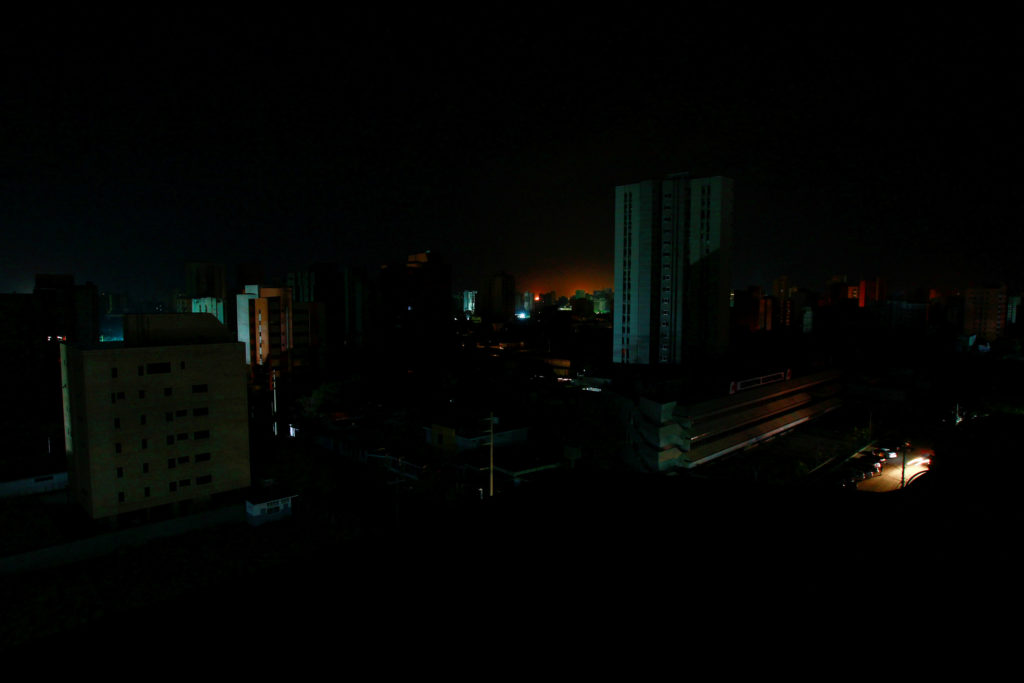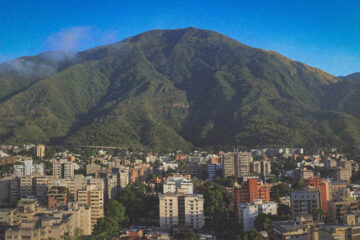The Venezuelan blackout saga is far from over, it’s going to be one of those long story arcs from the looks of it.
Most of the country is now suffering through a very strict “Load Management Plan” (also known as scheduled power rationing but with fancy words) through the entirely of April. Caracas is conveniently exempt from this rationing due to “military demands”, according to hearsay this was done in order to placate the growing protests in the Capital District; other states, such as Vargas and Delta Amacuro, has been left out of this hash rationing plan as well.
Efforts have been made to paint Caracas with a coat of normalcy so as to present an international image that everything’s fine and dandy down here. The truth however, is that over one and a half month after the worst blackouts in Venezuelan history the situation continues to be quite dire in other states of the country.
For those that live in the Capital District, it would seem like we’re slowly going back to our regularly scheduled misery, which makes it easy to forget and obviate the absolute disaster that other states are living through.
Zulia, my beloved birthplace, has had it bad when it comes to rationing; they’ve had to deal with power rationing blocks that can last up to twelve hours — in some cases, they’ve had to go for up to eighteen hours per day without power.
Tachira is another state that is now going through twelve hours of scheduled power rationing. I’m certainly no expert, but if you ask me, an already destroyed economy has very little chance of recovery when you’re forced to spend half of the day without electricity — not to mention the severe impact these scheduled power blackouts have on the daily livelihood of our citizens, both mentally and physically.
One month and a half after the utter collapse of our power grid and here we stand as a country, barely functioning and held together by a very flimsy, damaged, and precarious power grid, still without an official and proper answer of what happened (or rather, an official admission that their glaring mismanagement and lack of maintenance ultimately led to a collapse that has been warned about for years). The full extent of the damage and disrepair remains concealed in a shroud of secrecy and misinformation — or lack thereof.
The "Vital Liquid"
Seriously, if I see another politician, government staff, or anyone else refer to water as the “Vital Liquid” once more I’m gonna start losing it.
While power has been somewhat stable in Caracas lately *knocks on wood*, water continues to be a headache for most. We just went through two weeks without running water, from the 24th of March until the 5th of April. The last two blackouts that happened towards the end of March knocked off Hidrocapital’s water distribution grid, it took days for power to be stable enough for them to be able to slowly kick the plants back to life.
Once running water returned to this area we had water for a week or so before it was gone once again. At first, we were informed that the water rationing schedule that has been part of our lives since 2016 had been suspended and that we’d get water according to availability and status of the service.
It sounded worrisome, especially with the way this information was worded, but the truth was that we surprisingly had water for days, including days that we’d normally don’t have access to it.
It was too good to be true though, the rationing schedule seems to be back in full force and we only have running water from Wednesday afternoon until early Sunday morning — same as always.
Other areas in Caracas, such as Caricuao, have now gone through ten whole days without water, protesters have denounced that they’ve had to wait in line for up to twelve hours just to receive forty liters of water.
Vecina de la comunidad de Caricuao en la ciudad de Caracas, indicó que tiene 12 horas haciendo una cola para poder "agarrar" 40 litros de agua. #20Abr pic.twitter.com/mvBeth1JcS
— VPItv (@VPITV) April 20, 2019
As if we didn’t had enough things to worry about, we now have to worry about the fact that another widespread blackout can once again impair or delay the distribution of water.
A country with severe water shortages and distribution problems despite having an abundance of it — welcome to Venezuela. Believe it or not, water is way, way more expensive (and valuable) than gasoline here.
I’m writing this paragraph hours before we find out if running water will be cut off on early Sunday morning as scheduled, or if we’ll get lucky and have a few more hours of it. If it does get cut then we’ll do yet another building tank rationing cycle and hope that the running water is back before we run out of it.
Edit: Yup, it’s gone…hopefully until Wednesday.
It’s all so tiresome, really.
The slow burner
As for the political crisis that has enveloped Venezuela since January of 2019, well, it saddens me to say that we’re once again stuck in a standstill status quo.
A few rallies here and there, more specific sanctions passed, and the same recycled messages and statements from both the regime and the opposition; some of that early momentum has waned due to the opposition leadership’s ever so punctual inaction, which ultimately benefits Maduro’s regime.
Meanwhile, China continues to tighten its grip on whatever is left of this country, their goal is to keep things as is, as it ultimately benefits their agenda. Remember, their imperialism is totally cool and fine according to some.
After years of denying the existence of a humanitarian crisis and need for humanitarian aid, Maduro has finally allowed entry of aid coming from the Red Cross. Surprising no one, both sides have tried to claim it as a “Victory”, ultimately this aid, while much needed by some, isn’t quite enough on its own.
Still, I hope that it does ultimately land into the hands of those that desperately need it, but this is Venezuela, most of it will end up in corrupt hands—not being pessimistic here or anything, it’s just that that’s how it usually goes.
Everything else is business as usual, hyperinflation keeps making our lives miserable, you can find some things that were hard to find in the past but now most can’t afford them, and I’m bracing myself for the inevitable and traditional minimum wage raise on the 1st of May.
The past two months have been exhausting, I could easily describe them as an exacerbated version of our usual hardships. All I can do is keep going with my personal projects and plans to ensure the safety and well-being of my brother, build a future for him beyond these borders.
Between the blackouts of March, some minor setbacks, and the extended Easter holiday period I’m a bit behind with my paperwork. I hope that things stabilize soon so that I can ramp up with the final “make or break” bureaucracy of my master plan.
-Kal



